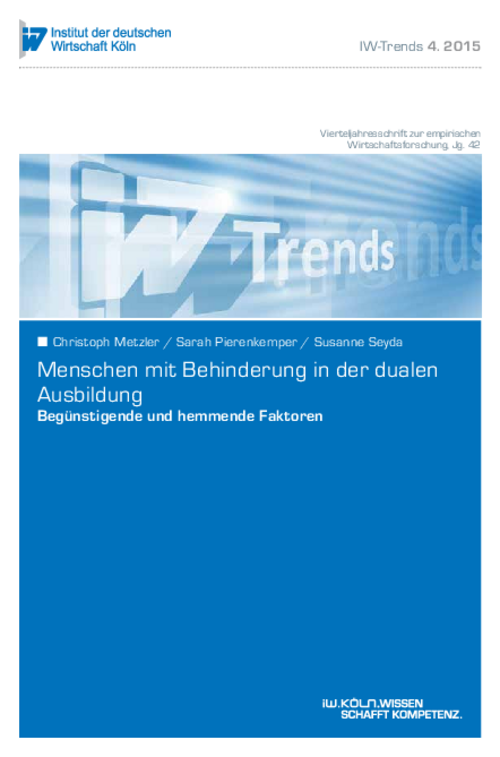Positive and Negative Factors

People with Disabilities in Germany’s Dual Vocational Training System
IW-Trends

Positive and Negative Factors
In many companies inclusion in vocational training is today already a reality. In the last five years almost one quarter of all firms with an apprenticeship programme have employed trainees with a disability. Some 12 per cent currently employ disabled trainees, most of whom are teenagers with a learning disability. The majority of companies train disabled teenagers for professions requiring a three or three-and-a-half-year training, a quarter for professions with two-year courses as well. Only approximately a tenth offer special, less theoretical apprenticeships leading to a recognised vocational qualification with a practical emphasis. Experience with the target group is important: companies which already have disabled employees are more than 40 percentage points more likely to train teenagers with a disability than those which do not. However, even 80 per cent of companies already training the disabled see the greatest obstacle to a greater involvement in a lack of applications from this target group. In addition, three quarters of these firms would like more assistance, for example, long-term support from special education teachers and official contact partners to answer their questions around vocational training for the disabled.

Christoph Metzler / Sarah Pierenkemper / Susanne Seyda: Menschen mit Behinderung in der dualen Ausbildung – Begünstigende und hemmende Faktoren
IW-Trends

More on the topic

What factors influence the career ambitions of people with disabilities?
Many companies in Germany report having difficulties not only in recruiting employees, but also in filling vacant management positions.
IW
Working with Long COVID: Impacts and Options for Work Arrangements
A SARS-CoV-2 infection can have long-term health consequences, a phenomenon commonly known as Long COVID, which often affect individuals of working age.
IW